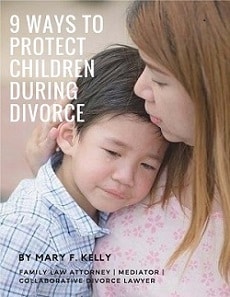
Do I Need a Will?
The answer to this question for most people is, YES, you need a will. Why? Because most people would choose a different outcome for their estate than what New York State law provides if you die without a will.
If you are married and you have children, you most likely need a will.
It’s a common misconception that if you are married and have children, and you die without a will, your spouse will inherit your whole estate. This is not true! If you don’t have a will, your spouse will inherit the first $50,000 of your estate. Anything after that is divided 50/50 between your spouse and your children.
If this is your second marriage and you have grown children with a former spouse, the same rule applies. Do you want your surviving spouse to inherit $50,000, then split the remainder of your estate 50/50 with your children? You might unwittingly force the sale of your house to distribute your estate, or leave your children without the inheritance you intend. Each situation is different, but you need a will to ensure your estate is distributed as you want it to be.
If you have children under 18, you need a will.
If your children are minors (under 18) and you have no will, they will inherit some of your estate and the court will have to appoint someone guardian of the property until they come of age. This guardian appointment costs your estate fees, even if the court appoints your spouse. And the guardian will have to make an annual accounting of the children’s property—another expense.
In your will you can appoint a guardian, in case both parents die while your children are under 18. In case of such a tragedy, the best gift you could leave your children is a well thought-out plan for their care.
If you want to leave money to a charity or even a particular family member, you need a will.
To make any specific bequest—to a school, church, charity, niece or nephew, significant other or friend—you need a will. If you are single and have no children, unless you write a will to specify otherwise, your estate will go to your parents (or your siblings, if your parents have passed away). If your parents and siblings are deceased, your estate goes to the “next of kin,” which could mean aunts, uncles, cousins. Most people have specific wishes for their assets and property after their death, and to implement your wishes you need to have a will.
A will also allows you to name an executor for your estate. If you die without a will, the court will appoint a family member to distribute your estate, file estate tax forms and take care of other administrative duties. This person has to post a bond—in other words, pay an amount of money set by the court that will not be returned until the estate is closed—even if the court appoints your spouse! In your will, you can exempt the executor you name from posting the bond, saving him or her money and aggravation.
We will help you decide what your will says
At Kelly & Knaplund, we can help you prepare for your family’s future. We are skilled and knowledgeable about revising your will after a second marriage or divorce, setting up a special needs trust and other special circumstances. Our goal is to give you options for your will so you can meet your personal and financial goals. Contact an estate planning attorney at Kelly & Knaplund today at (914) 631-2657 or info@kellyandknaplund.com.
Copyright (c) 2018 by Brendan H. Buschman



